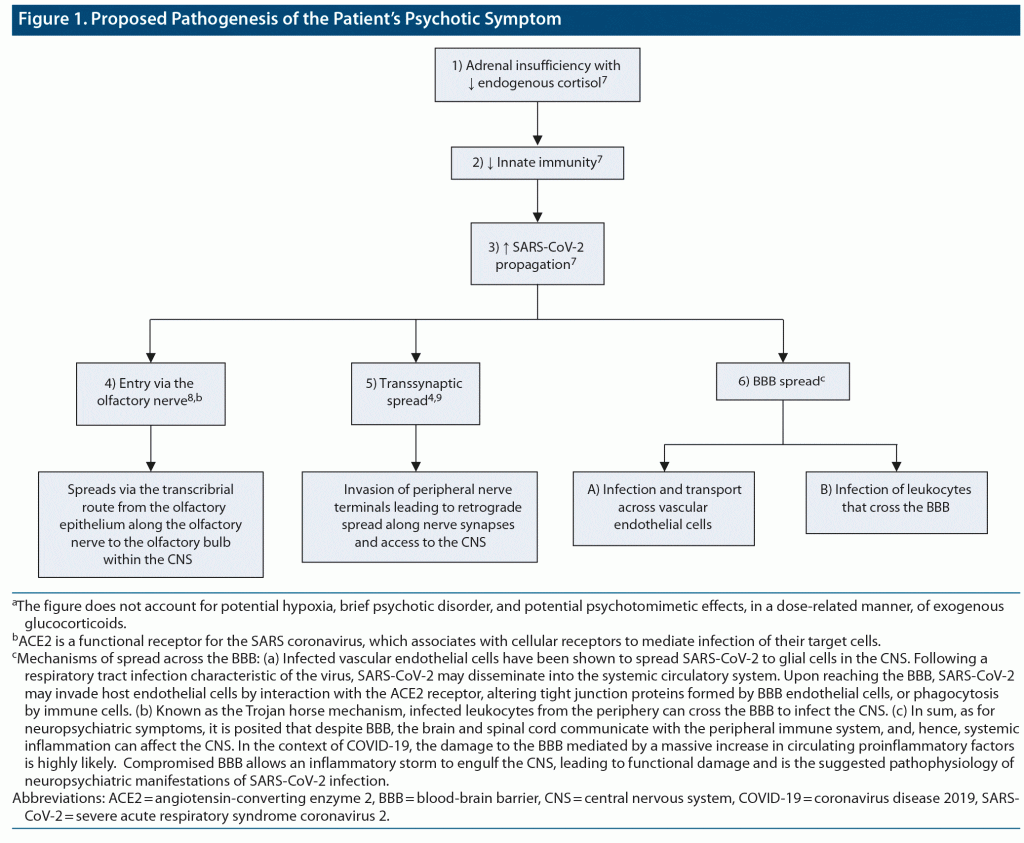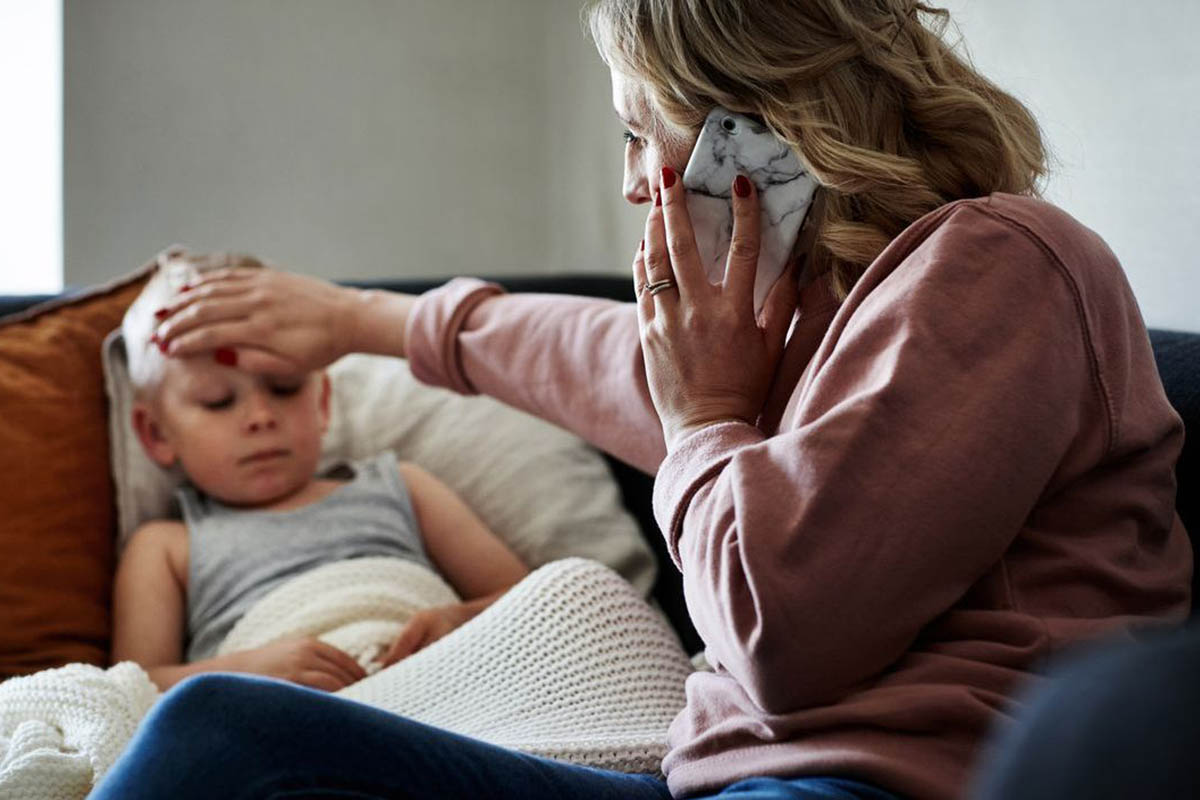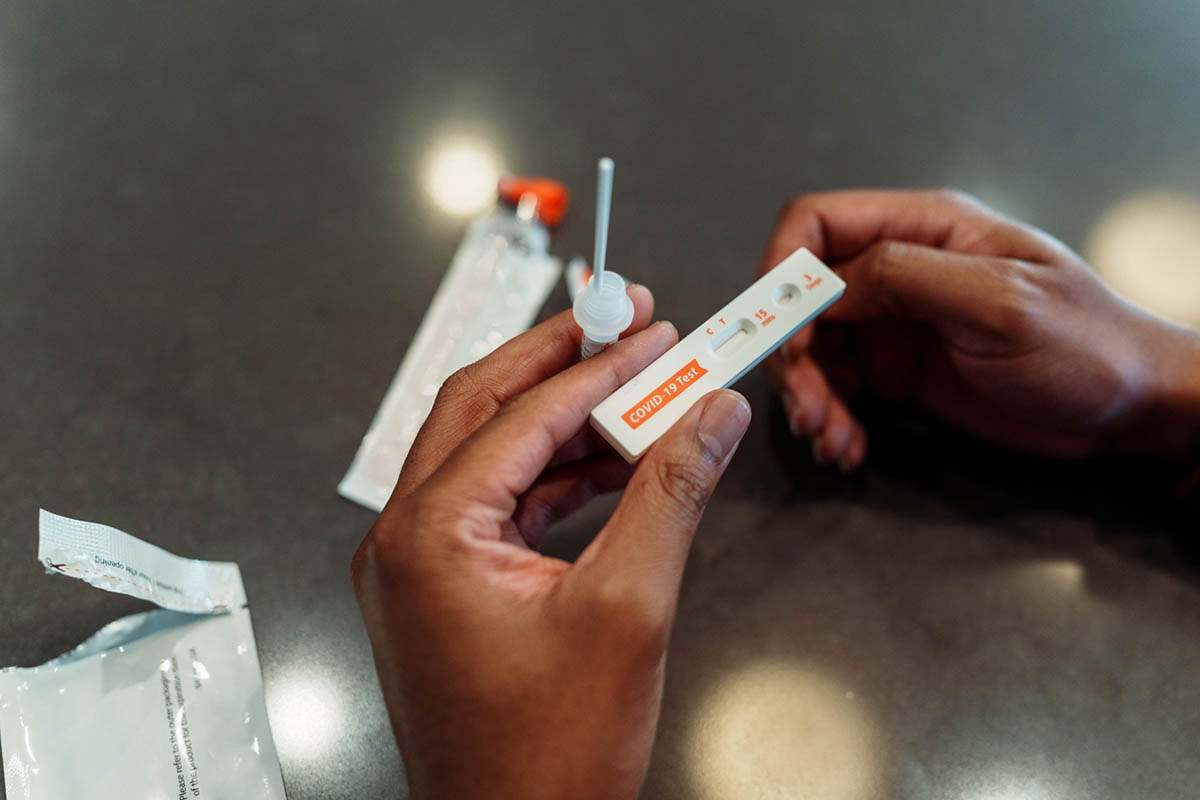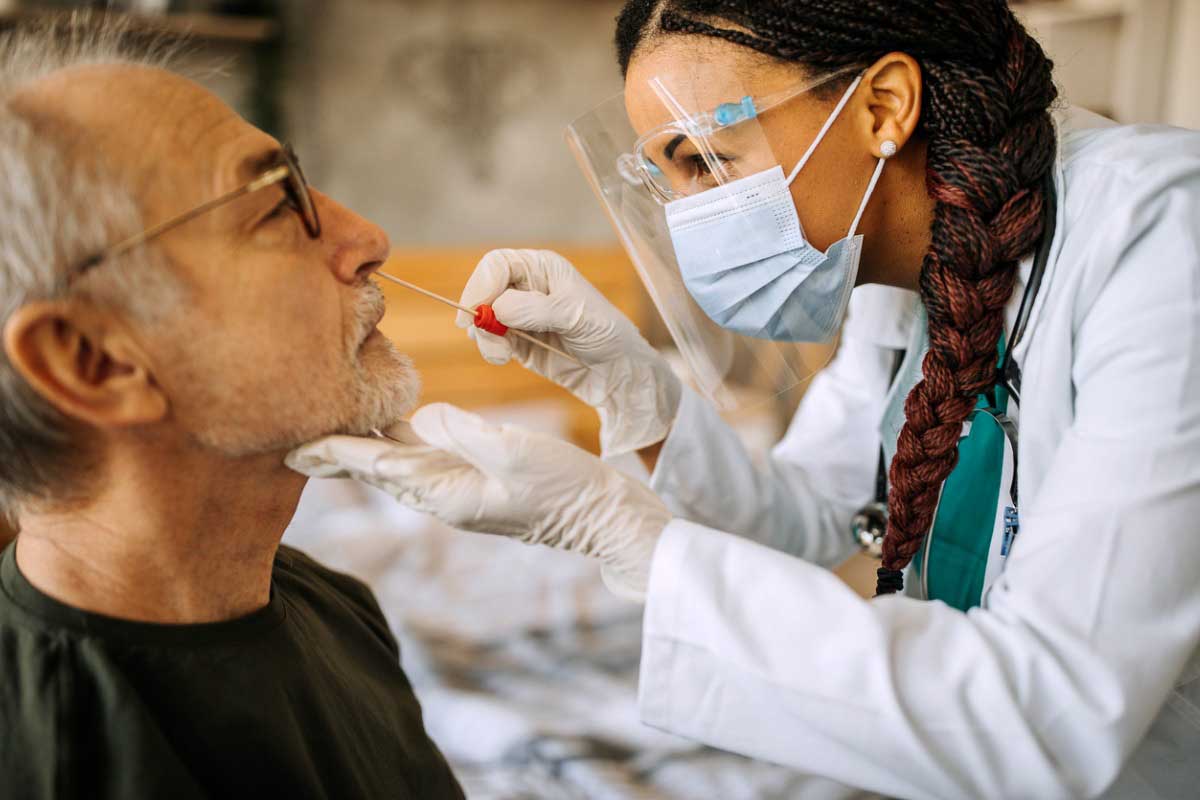
Prim Care Companion CNS Disord 2021;23(6):21cr03082
To cite: Spiegel DR, Colangelo T, Oplinger M, et al. Psychosis in a patient with SARS-CoV-2 and secondary adrenal insufficiency. Prim Care Companion CNS Disord. 2021;23(6):21cr03082.
To share: https://doi.org/10.4088/PCC.21cr03082
© Copyright 2021 Physicians Postgraduate Press, Inc.
aDepartment of Psychiatry and Behavioral Sciences, Eastern Virginia Medical School, Norfolk, Virginia
*Corresponding author: David R. Spiegel, MD, Department of Psychiatry and Behavioral Sciences, Eastern Virginia Medical School, 825 Fairfax Ave, Norfolk, Virginia 23507 ([email protected]).
In addition to the psychological distress associated with the coronavirus disease 2019 (COVID-19) pandemic, the direct effects of the virus itself and the subsequent immune response of the host on the central nervous system (CNS) continue to be elucidated.1 We present the case of a patient with secondary adrenal insufficiency and no psychiatric history who developed a psychotic episode after a positive test for severe acute respiratory syndrome coronavirus 2 (SARS-CoV-2).
Case Report
Our patient was a 41-year-old black woman with a medical history significant for hypothyroidism and secondary adrenal insufficiency who presented to our emergency department with paranoid delusions of 2 days duration. Eight days prior to admission, the patient was hospitalized for 2 days due to adrenal crisis from nonadherence to outpatient prednisone. The patient had tested positive for SARS-CoV-2 infection and denied CNS/psychotic symptoms but had a C-reactive protein (CRP) level of 0.9 mg/dL. COVID-19 pneumonia was considered in the differential diagnosis. Our patient was discharged on hydrocortisone 20 mg at 8:00 am/10 mg at 4:00 pm and levothyroxine 100 mcg/d.
During the current admission, the patient was asymptomatic of COVID-19. She denied constitutional/gastrointestinal symptoms, headache, ageusia, and anosmia. Her vital signs were within normal limits, her pulse oximetry was > 94%, and the chest x-ray was unremarkable. Blood/urine cultures, urine drug screen, and blood alcohol were negative. The laboratory evaluation was remarkable for serum cortisol < 0.85 mcg/dL, adrenocorticotrophin hormone (ACTH) < 1.1 pg/mL, sodium of 130 mmol/L, and thyroid-stimulating hormone of 5.7 mU/L. Despite low ACTH and cortisol levels, the patient demonstrated no signs or symptoms of adrenal crisis. Computed tomography (CT) of the brain and lumbar puncture, including cerebrospinal cultures, protein, and glucose, were unremarkable. The psychiatric consultation team was consulted due to paranoid delusions.
During our evaluation, except for the previously mentioned paranoid delusions, she denied other psychotic symptoms (auditory/visual hallucinations). Her speech was goal directed. She admitted nonadherence to both prednisone and levothyroxine for 6 days. She was oriented x 3, and the Confusion Assessment Method2 yielded a negative result. Magnetic resonance imaging of the head and pulmonary and head/neck CT angiography revealed no acute findings. Pertinent positive results included elevated levels of CRP (1.3 mg/dL) and interleukin 6 (IL-6; 8.1 pg/mL).
As the patient was not thought to be in adrenal crisis, she was admitted to the hospital when hydrocortisone 20 mg/d was initiated. Risperidone 0.5 mg twice/d was started, and her paranoid delusions abated after 3 days of treatment. Hydrocortisone was tapered on day 4 of treatment, and prednisolone 5 mg/d was started. Our patient continued without psychosis until discharge 10 days later. Interestingly, her CRP and IL-6 levels were within normal limits after 3 days of hydrocortisone treatment. She was discharged on prednisolone and levothyroxine, but risperidone was discontinued on the day of discharge.
Discussion
SARS-CoV-2 may gain entry to the CNS and possibly induce neuropsychiatric symptoms, such as psychosis, by 2 routes: hematogenous or neuronal transmission (Figure 1).3–9 There is emerging evidence about psychiatric manifestations as a potential complication of SARS-CoV-2 infection.10 In 1 study,11 and similar to our patient, two-thirds of patients infected with SARS-CoV-2 who developed psychosis had no reported psychiatric history. Also, over 50% of psychiatrically symptomatic individuals were either asymptomatic (38%) or mildly symptomatic (16%) for COVID-19, a finding that is similar to our patient.11
Despite unremarkable neuroimaging and lumbar puncture, our patient did have elevated IL-6 and CRP levels. While review of psychoimmunology is beyond the scope of this report, enhanced inflammation in psychosis has been confirmed by meta-analyses in chronic schizophrenia and drug-naive patients in first-episode psychosis. Furthermore, high levels of IL-6 in adolescents correlate positively with occurrence of psychosis later in life.12 One limitation is while psychosis is rare in adrenal insufficiency, there are reports of new-onset psychosis in adrenal crisis.13,14 However, our patient was determined to not be in adrenal crisis. Nonetheless, we recommend that further studies regarding neuropsychiatric symptoms of SARS-CoV-2 infection are warranted.
Published online: December 9, 2021.
Potential conflicts of interest: Dr Spiegel is on the speakers’ bureaus for Allergen, Alkermes, Otsuka, and Intra-Cellular Therapies but has no conflict of interest in preparation of this manuscript. Drs Colangelo, Cherukuru, and Gill; Mr Oplinger; and Mss Parkerson and Lamas report no conflicts of interest related to the subject of this report.
Funding/support: None.
Patient consent: Consent was verbally received from the patient to publish this case report, and information has been de-identified to protect anonymity.
References (14)

- Troyer EA, Kohn JN, Hong S. Are we facing a crashing wave of neuropsychiatric sequelae of COVID-19? neuropsychiatric symptoms and potential immunologic mechanisms. Brain Behav Immun. 2020;87:34–39. PubMed CrossRef
- Inouye SK, van Dyck CH, Alessi CA, et al. Clarifying confusion: the Confusion Assessment Method: a new method for detection of delirium. Ann Intern Med. 1990;113(12):941–948. PubMed CrossRef
- Zubair AS, McAlpine LS, Gardin T, et al. Neuropathogenesis and neurologic manifestations of the coronaviruses in the age of coronavirus disease 2019: a review. JAMA Neurol. 2020;77(8):1018–1027. PubMed CrossRef
- Smith CM, Komisar JR, Mourad A, et al. COVID-19–associated brief psychotic disorder. BMJ Case Rep. 2020;13(8):e236940. PubMed CrossRef
- Dubovsky AN, Arvikar S, Stern TA, et al. The neuropsychiatric complications of glucocorticoid use: steroid psychosis revisited. Psychosomatics. 2012;53(2):103–115. PubMed CrossRef
- Marazuela M, Giustina A, Puig-Domingo M. Endocrine and metabolic aspects of the COVID-19 pandemic. Rev Endocr Metab Disord. 2020;21(4):495–507. PubMed CrossRef
- Achar A, Ghosh C. COVID-19–associated neurological disorders: the potential route of CNS invasion and blood-brain relevance. Cells. 2020;9(11):2360. PubMed CrossRef
- Yachou Y, El Idrissi A, Belapasov V, et al. Neuroinvasion, neurotropic, and neuroinflammatory events of SARS-CoV-2: understanding the neurological manifestations in COVID-19 patients. Neurol Sci. 2020;41(10):2657–2669. PubMed CrossRef
- Wang SC, Su KP, Pariante CM. The three frontlines against COVID-19: brain, behavior, and immunity. Brain Behav Immun. 2021;93:409–414. PubMed CrossRef
- Keyhanian K, Umeton RP, Mohit B, et al. SARS-CoV-2 and nervous system: from pathogenesis to clinical manifestation. J Neuroimmunol. 2020;350:577436. PubMed CrossRef
- Iqbal Y, Al Abdulla MA, Albrahim S, et al. Psychiatric presentation of patients with acute SARS-CoV-2 infection: a retrospective review of 50 consecutive patients seen by a consultation-liaison psychiatry team. BJPsych Open. 2020;6(5):e109. PubMed CrossRef
- Steardo L Jr, Steardo L, Verkhratsky A. Psychiatric face of COVID-19. Transl Psychiatry. 2020;10(1):261. PubMed CrossRef
- Munawar M, Iftikhar PM, Hasan CA, et al. Neuropsychiatric manifestation of Addison’s disease: a rare case report. Cureus. 2019;11(4):e4356. PubMed CrossRef
- Farah J de Lima, Lauand CV, Chequi L, et al. Severe psychotic disorder as the main manifestation of adrenal insufficiency. Case Rep Psychiatry. 2015;2015:512430. PubMed CrossRef
Please sign in or purchase this PDF for $40.
Save
Cite




